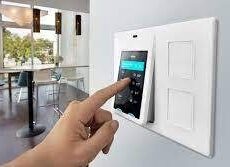Have you heard that by listening to the typing on your pc some can decipher what you are writing, or that your computer can be used as a microphone? Or maybe you have “checked” this new software that can recognize footsteps and even tell if someone has any illness. I wonder whether there is such a phobia as technophobia? I will certainly develop one soon.
Shadow recognizing technology
This month at the 2021 International Conference on Computer Vision, Prafull Sharma and other researchers from M.I.T (Massachusetts Institute of Technology) will make the results presentation of their work. The main field of research were walls and shadows. It turns out that apart from the obvious shadows on sunny bright days that might appear on your wall, there is undetected by the human eye reflections and “soft” shadows that this new specially trained machine can detect and decipher.
The researchers conducted several experiments making different activities in groups and alone so that their shadows were projected on walls with cameras on. Those recordings were then fed to the machine for pattern memorisation. The results showed: the machine could automatically recognize patterns of human activity by merely shadows if it was trained for this purpose. It basically means if the camera focus is not even on you it could still know how many people are in the room and what they are doing.
1 The same results though were inapplicable when using a smartphone camera or in a dim low lighted environment or near a flickering source of light,such as TV“It’s a very cool scientific finding that such a low-intensity signal can be used to predict information,”Prafull Sharma, one of the researchers, says. “And of course, as we established, the naked eye cannot do this at all.”
Side-channel attacks:can they spy on us literally everywhere?
In general such tools could be described as side-channel attacks, or side-channel surveillance. They can be used in collecting data with the help of the most unassuming objects you can find in your home. Even that bag of chips can tell about its surroundings. Although the researchers are doubtful that this particular system for shadows recognizing could be used as something everyday and practical, maybe in the far off future.
They propose instead something much more realistic like watch out tools for elder people or embed them in the vehicles where they can warn a driver about pedestrians in case the sight line is poor. Cyber security specialists and scientists themselves assure that for the average person there is nothing to worry about. It is not likely that police will come to your place and stick a camera up your window. Military and special agencies might have interest in such innovations, it seems they always had.
Doesn’t it seem like we live in the future already?




